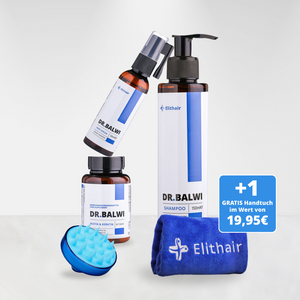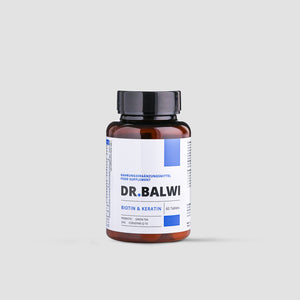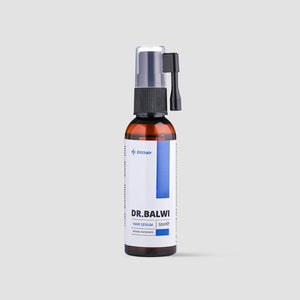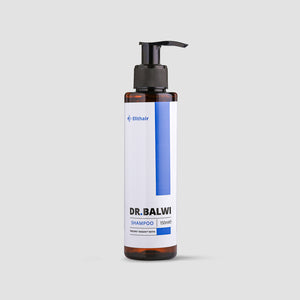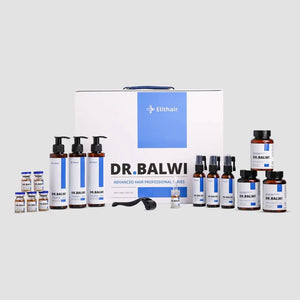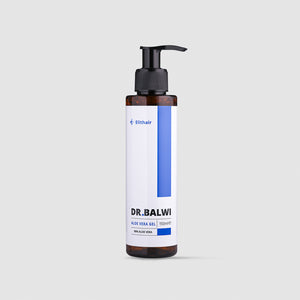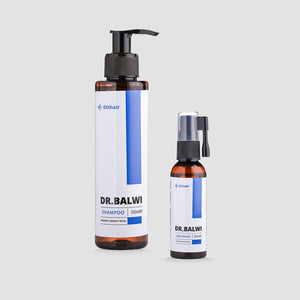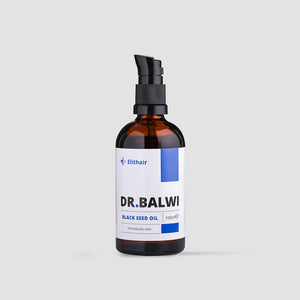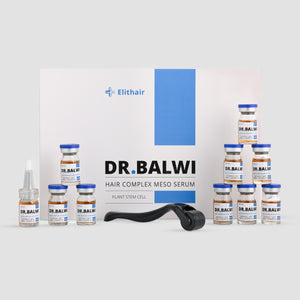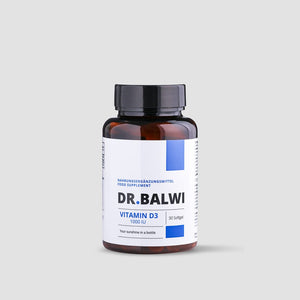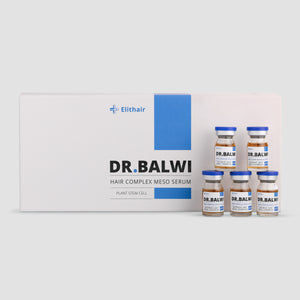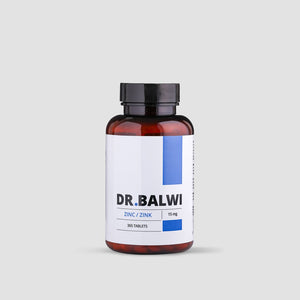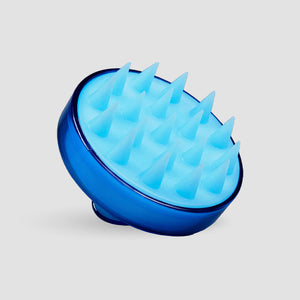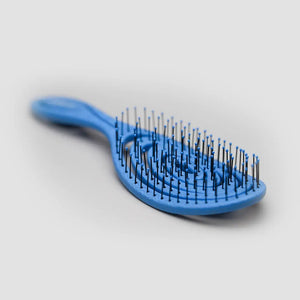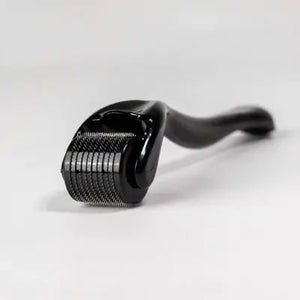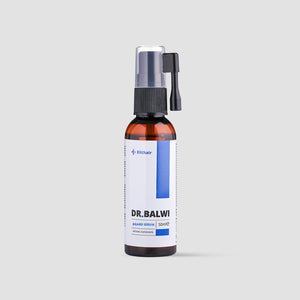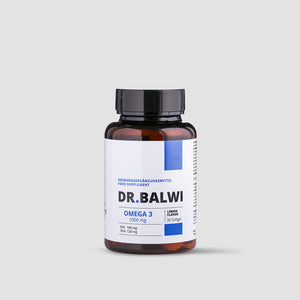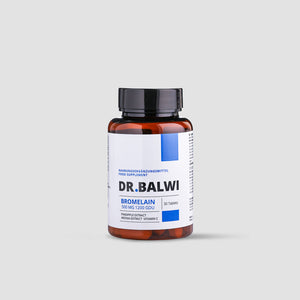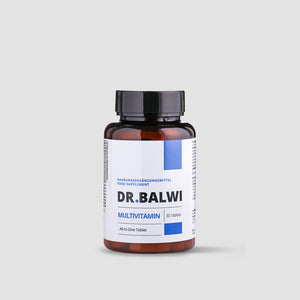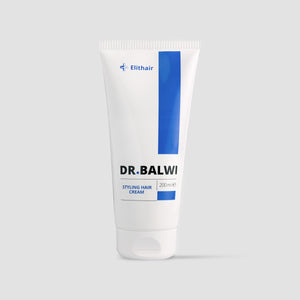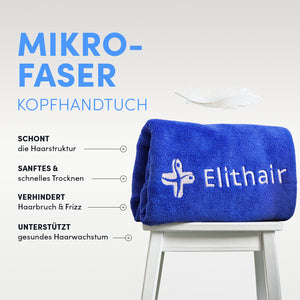
Can dietary supplements help with hair loss?
Hair loss supplements promise a full head of hair, which is known to represent health and vitality. However, many different factors can cause hair to become thinner or even fall out.
Various trace elements, vitamins, amino acids, and minerals are important for hair health. A deficiency can lead to hair loss. Therefore, many people wonder whether these supplemental products can really stop hair loss.
Table of contents
- Dietary supplements: effective against hair loss?
- Are the products suitable for all types of hair loss?
- Helpful vitamins and trace elements
- Who is suitable for dietary supplements against hair loss?
- Hair transplantation as the best solution for hair loss
Dietary supplements for hair loss: truth or myth?

There is an almost overwhelming range of different nutritional supplements on the market that claim to work wonders for hair loss. The fact is that various trace elements such as iron, copper or zinc and vitamins such as biotin are important for healthy hair growth. Iron, zinc and copper are particularly responsible for the healthy structure of the hair. Selenium, calcium and iodine are also necessary for healthy hair. A deficiency in these nutrients can make the hair appear dull or even lead to hair loss. As soon as the body does not have sufficient structural substance to produce new and healthy hair, massive disruptions in the hair cycle occur. The basis for healthy hair growth is therefore a balanced diet and sufficient nutrient intake. For this reason, nutritional supplements can help against hair loss to a certain extent.
Do the products help against all forms of hair loss?
No! Neither vitamins nor trace elements can slow or even stop hair loss in cases of hereditary hair loss. Dietary supplements are only useful for hair loss if it is triggered by a specific deficiency. However, the causes and forms of hair loss vary widely. In addition to androgenetic alopecia, mechanical hair loss can also occur. Hormonal imbalances, illness, or medication can also cause hair loss. For this reason, it is essential that you first have the cause of your hair loss clarified by a specialist. Only when it is known whether, and if so, which deficiency is causing your hair loss can the right dietary supplement be found.
What is the function of the various vitamins and trace elements?
A combination of various vitamins and trace elements ensures healthy, full hair. Among the most important are biotin, zinc, and iron. These are contained in virtually all dietary supplements for hair loss.
1. Biotin
Biotin is very important for healthy hair growth. It is also known as vitamin H or vitamin B7, is water-soluble, and belongs to the B complex. Biotin is found in foods such as dried yeast, walnuts, bananas, rice, and oatmeal. This so-called hair vitamin is involved in many metabolic processes and also plays a role in cell growth. The vitamin promotes metabolism and stimulates the formation of new hair cells. Furthermore, it is important for both cell growth and development. A deficiency can lead to hair loss.
2. Zinc
Zinc plays a key role in the formation of keratin. It is therefore an important trace element for healthy hair growth. Zinc is particularly found in beef, eggs, and cheese. A deficiency often causes alopecia areata.
3. Iron
Iron deficiency also causes hair to quickly become brittle and eventually break off. A sufficient supply of iron is therefore essential for the development of healthy hair. Younger women, in particular, suffer from iron deficiency very frequently.
For whom are dietary supplements for hair loss recommended?

If you suffer from hair loss, you should have your doctor determine the cause to find a suitable treatment option for your individual case. A simple blood test at your doctor's office can determine whether a specific deficiency is responsible for your hair loss. If this is the case, taking certain dietary supplements to combat hair loss can be helpful. This is particularly necessary if you are unable to meet your needs for various trace elements and vitamins through your diet. If you decide to take dietary supplements, you should always make sure that they have good bioavailability. Otherwise, there is a risk that the artificial minerals will be excreted undigested and have no effect. Since an excess of certain vitamins and trace elements is also not conducive to hair growth, you should only take these supplements if you truly have a deficiency.
Hair loss supplements for fuller hair?
Healthy individuals who eat a balanced diet and are free of deficiencies cannot achieve fuller hair by taking such supplements. Furthermore, these supplements are of no help if hair loss is already so advanced that the hair roots are significantly damaged or even completely dead. In this case, no dietary supplement can help stimulate hair growth.
What helps if the hair roots have already died?

If your hair loss isn't caused by a deficiency, or if it's already too advanced, only a hair transplant can help replenish the bald patches on your head. Dietary supplements can't help dead hair roots regenerate. If you suffer from bald patches on your head and want them to finally be a thing of the past, the Elithair team is the right contact for you. During a free hair consultation, our hair experts will provide you with detailed advice. A precise hair analysis will provide information about the extent of your hair loss. Furthermore, the quality and structure of your hair can be assessed. This can determine whether a hair transplant is a viable option for you.
Hair transplantation - when dietary supplements do not help against hair loss
At Elithair, hair transplantation is performed exclusively using the proven FUE method. With this method, individual follicular units are removed from the donor area and then reimplanted in the bald patches on your scalp. This innovative technique guarantees a high transplantation rate and an aesthetically pleasing and, above all, natural end result, which you can enjoy approximately one year after the procedure. If hair implantation is not possible for you, for example, because you do not have sufficient donor hair, our hair professionals will suggest alternatives. These include hair simulation or artificial hair transplantation.
Conclusion: Dietary supplements for hair loss do not always help
Taking dietary supplements for hair loss is only sensible and effective if a specific deficiency is present. If hereditary hair loss (androgenetic alopecia) is involved, these supplements will not help stop the problem. To determine whether taking these supplements is appropriate for you, you should first determine the cause of your hair loss. Zinc, iron, and vitamin deficiencies are often responsible for increased scalp hair loss. In this case, dietary supplements for hair loss can help. However, if your hair loss has other causes, a hair transplant can help you get rid of the bald patches. Especially if the hair roots are already irreversibly damaged, a hair transplant is the only permanent way to achieve full hair growth. Do you have any questions about this topic or would you like more information about our treatments? Then contact our team of experts, who are always available to advise you. You can also have a free, no-obligation hair analysis performed. You, too, can benefit from the expertise of Dr. Balwi and his experienced team. Elithair stands for successful hair transplantation in Turkey.
